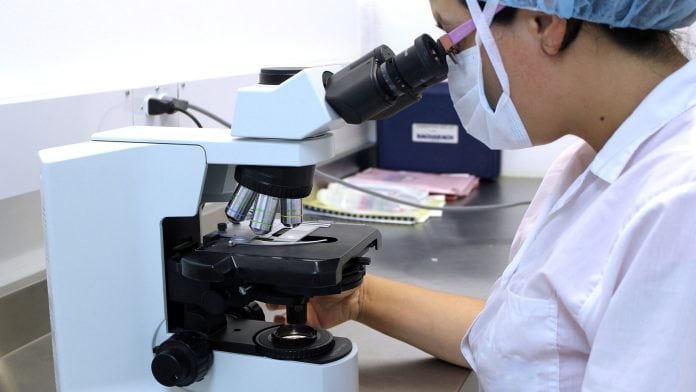
Scientists from the universities of Manchester and Glasgow in the UK have found a potentially new way of treating cerebral malaria in a study with mice.
According to the study authors, they found that inhibiting a complex called the inflammasome, at the same time as delivering anti-malarial drugs, reduced mortality from experimental cerebral malaria in mice.
Published in PNAS and funded by the Medical Research Council, the research shows that animals treated with inflammasome inhibitors and anti-malarial drugs saw a significant reduction in levels of cerebral pathology and signs of neurological impairment, compared with mice treated only with anti-malarial drugs.
A breakthrough in fight against malaria
This trial is yet to be tested on humans; however, the research shows a breakthrough in tackling the malaria crisis, which sees, according to the World Health Organization (WHO), 438,000 people die from the disease every year.
Dr Kevin Couper from the University of Manchester said: “Cerebral malaria is so deadly because there are no early symptoms; it’s often hard to spot until it’s too late.
“We were particularly interested in looking at why anti-malarial drugs, the only current treatment for the condition, do not promote optimal recovery from cerebral malaria, as well as developing new therapies. So, we were delighted when we discovered some of the biological processes involved.”
How did the cerebral malaria mice recover?
Following the sequencing of the RNA in brain cells of mice, the team realised that recovery associated with experimental cerebral malaria was regulated by a family of genes involved in controlling the immune response within the brain.
When the product of one of the genes called IL33 was given anti-malarial drugs, mortality in mice went from 20% to 0% and pathological features in the brain such as haemorrhage, blocked vessels, leakage and impaired neuronal signalling were also significantly reduced.
The results suggested that IL33 was important for inhibiting the inflammasome, and when the team used an inflammasome inhibitor alongside anti-malarial drugs to treat experimental cerebral malaria they got the same result as treatment with IL33.
When will it be tested on humans?
Couper added: “This is an extremely promising area of research and we are excited that there is now a genuine way forward for researchers to work on.
“But it’s clear that mice are not humans and our next stage will be to check if this dysregulation in the IL33-inflammasome pathway occurs in people who have cerebral malaria and influences their recovery, and we are starting to do that with partners in Africa.”
Professor David Brough from the University of Manchester was also on the research team and concluded: “The identification of the inflammasome in experimental cerebral malaria highlights it as an important therapeutic target and complements our ongoing research to develop more effective inhibitors for use in treating inflammatory disease.”







